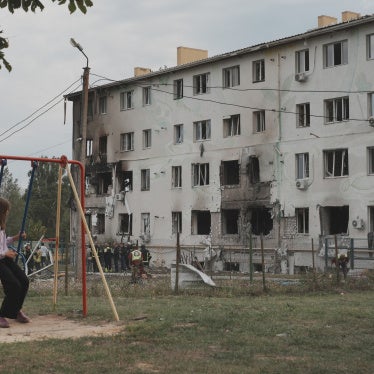In the midst of a large-scale military offensive in Kosovo, the Yugoslav government has cracked down on the last remaining Albanian-language daily newspaper in Kosovo, Koha Ditore.
On Monday afternoon, the newspaper and its editor-in-chief, Baton Haxhiu, were convicted by the municipal court in Prishtina for publishing information that "incited hatred between nationalities," according to article 67 of Serbia's controversial Law on Public Information. The paper was fined 420,000 dinars (US$26,800) and Haxhiu was fined 110,000 dinars (US$7,200). They have until Tuesday, March 23, to pay the fines, or the state may confiscate the paper's and Haxhiu's private property.
Koha Ditore is the last Albanian-language daily newspaper publishing in Kosovo. Last week another major daily, Kosova Sot, and a smaller paper, Gazeta Shqiptare, were forced to shut down after being fined 1.6 million dinars (US$104,500) each. Another daily paper, Bujku, has not published regularly since January because the authorities have not provided a licence. According to today's Serbian press, also on March 21, the small Albanian weekly Kombi was fined 1.6 million dinars for an article it published on December 21, 1998.
"This is a death blow to the Albanian-language media," said Holly Cartner, Executive Director of Human Rights Watch's Europe and Central Asia Division. "If Koha Ditore is silenced, Albanians in Kosovo will be denied printed information on the brutal campaign being waged against them by the government."
The conviction of Koha Ditore and Haxhiu, after a closed two-hour trial this Sunday, was based on two articles published in the newspaper on March 19, 1999. One article was on the statement of the Kosovo Albanian delegation after they signed the Rambouillet Accord on March 18 in Paris. The offending section said: "The decision for signing the interim agreement was not easy... Once again entire villages are being burned to the ground. Civilians are being killed, tortured and beaten. Once again thousands of people are being forced out of their homes."
The other article was a statement by the head of the Albanian delegation, KLA political representative Hashim Thaci, in which Thaci labeled the government's attacks in Kosovo "genocide" and called on Serbs to distance themselves from the policies of Yugoslav President Slobodan Milosevic. Thaci's statement was taken directly from the Serbian-language new agency Beta, which was not charged with any criminal offense. The official Serbian television station, Radio Television Serbia, also broadcast parts of Thaci's comments.
Serbia's Law on Public Information has been criticized by human rights groups and most western governments for falling short of international standards that safeguard a free press. Since its introduction in October 1998, dozens of independent and opposition newspapers -- in the Albanian and Serbian language -- have been ordered to pay disproportionately high fines because of their articles. The government has shut down five private radio and television stations, along with one Serbian-language newspaper, and two newspapers have been forced to move their operations to Montenegro. Foreign broadcasts of the BBC, VOA, RFE/RL and Deutsche Welle are banned.







